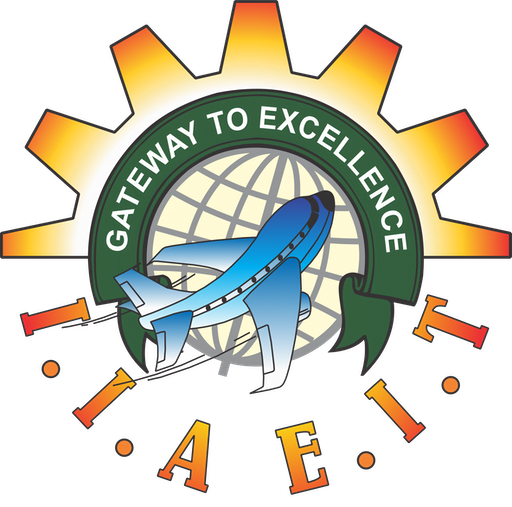Introduction
Aerospace engineering is a primary field of engineering that primarily focuses on the development of aircraft and spacecraft. Aerospace engineers design, develop, test and produce aircraft, spacecraft, and other related systems and equipment. This is a dynamic and rewarding field that opens various career opportunities. For individuals passionate about aircraft design, space exploration, and the aviation industry, this discipline offers numerous paths to success. In India, the aerospace industry is expanding rapidly, with organisations such as ISRO, DRDO, and private companies like HAL and Tata Aerospace leading the way. The growth in the sector is resulting in numerous new job openings now and in the years to come. To become an aerospace engineer, Institutes like IIAEIT can be one of the best options to kickstart your career in this field and get into the highest-paying job roles.
Aerospace Engineering: Highest Paying Jobs & Skills Needed
If you’re an aerospace engineering graduate aiming for a lucrative career, here are the top 7 highest-paying roles to consider:
1. Aerospace Engineer
Role Overview: Aerospace engineers are involved in the design, development, and testing of aircraft, spacecraft, satellites, and missiles. They work on improving flight safety, fuel efficiency, speed, and weight.
Salary Range in India: ₹4 LPA to ₹30 LPA, depending on experience and specialization.
Top Employers: ISRO, DRDO, HAL, Airbus, Boeing.
2. Aeronautical Engineer
Role Overview: Aeronautical engineers focus on the design and development of aircraft that operate within Earth’s atmosphere. They work on components like engines, airframes, and control systems.
Salary Range in India: ₹5 LPA to ₹8 LPA.
Top Employers: Airbus, HAL, Indian Air Force.
3. Avionics Engineer
Role Overview: Avionics engineers specialize in the electronic systems used in aerospace vehicles, including navigation, communication, and display systems.
Salary Range in India: ₹4 LPA to ₹30 LPA.
Top Employers: ISRO, DRDO, Honeywell, GE Aviation.
4. Propulsion Engineer
Role Overview: Propulsion engineers design and develop engines and propulsion systems for aircraft and spacecraft. They work on improving engine performance and fuel efficiency.
Salary Range in India: ₹5 LPA to ₹35 LPA.
Top Employers: ISRO, DRDO, Rolls-Royce, Safran.
5. Flight Test Engineer
Role Overview: Flight test engineers are responsible for testing aircraft to ensure they meet safety and performance standards. They analyze data from test flights and make recommendations for improvements.
Salary Range in India: ₹5 LPA to ₹35 LPA.
Top Employers: HAL, DRDO, Boeing, Airbus.
6. Research Scientist (Aerospace)
Role Overview: Research scientists in aerospace work on developing new technologies and materials for use in aircraft and spacecraft. They conduct experiments and analyze results to advance the field.
Salary Range in India: ₹5 LPA to ₹40 LPA.
Top Employers: ISRO, DRDO, NAL, academic institutions.
7. Project Manager (Aerospace)
Role Overview: Project managers oversee aerospace projects from conception to completion, ensuring they meet deadlines, budgets, and quality standards.
Salary Range in India: ₹7 LPA to ₹45 LPA.
Top Employers: ISRO, DRDO, private aerospace firms.
Essential Skills for Aerospace Engineers
1. Core Technical Skills
- Advanced Mathematics & Physics: Proficiency in calculus, differential equations, linear algebra, thermodynamics, and fluid mechanics is non-negotiable.
- Aerodynamics, Propulsion & Structures: Deep knowledge of airflow dynamics, engine systems, structural integrity, and aeroelasticity.
- CAD/CAE Tools: Expertise in Computer-Aided Design (e.g., SolidWorks, CATIA) and simulation software like FEA (MSC Nastran) and CFD.
- Programming for Engineering: Skills in MATLAB/Simulink, Python, C/C++, and even machine‑learning tools are increasingly valuable.
- Materials Science & Manufacturing: Understanding of aerospace-grade materials, composites, additive manufacturing, and production techniques.
2. Specialized Industry Techniques
- Guidance, Navigation & Control (GNC): Design skills for control systems and autonomy frameworks.
- Digital Engineering & Generative Design: Knowledge of digital twins, AI-integrated design, and embedded AI systems.
- Flight Testing & Certification: Planning and executing tests, compliance, and analyzing flight data for safety and certification.
3. Critical Soft Skills
- Problem-Solving & Analytical Thinking: Ability to break down complex issues, interpret data, and innovate solutions.
- Critical Thinking & Creativity: Necessary for pioneering new designs and overcoming engineering challenges.
- Communication & Teamwork: Effective in writing clear reports, presenting ideas, and collaborating with cross-functional teams.
- Adaptability and Continuous Learning: The aerospace landscape changes rapidly—engineers must handle new technologies, processes, and regulations.
- Attention to Detail & Project Management: Precision in design/testing and the ability to coordinate complex projects from start to finish.
4. Additional Career-Boosting Skills
- Decision-Making & Business Acumen: Evaluating trade-offs in design choices and understanding cost, market, and legal factors.
- Networking & Professional Engagement: Leveraging industry connections and participating in conferences or student teams (AIAA, drone clubs) .
- Ethics & Safety Awareness: A fundamental skill set in highly regulated industries, ensuring compliance and risk mitigation.
How These Skills Align with Your Top 7 Career Paths
| Career Path | Key Technical Skills | Key Soft Skills |
| Aerospace / Aeronautical Engineer | Aerodynamics, propulsion, CAD, controls | Problem‑solving, teamwork, and communication |
| Avionics Engineer | Embedded systems, avionics software, electronics | Attention to detail, analytical |
| Propulsion Engineer | Thermodynamics, engine systems, and materials | Creativity, critical thinking |
| Flight Test Engineer | Simulation, data analysis, compliance | Decision‑making, precision |
| Research Scientist | Advanced maths, materials science, ML/data tools | Creativity, adaptability |
| Project Manager | Systems engineering, GNC, regulations | Leadership, project management |
Conclusion
With rapid growth in the aviation and space sectors, careers in aerospace engineering are increasing in both the public and private sectors. This field offers promising prospects of various career opportunities, along with high-paying salary packages. The need for skilled aerospace engineers is high, making it a potentially rewarding career choice. Institutes like IIAEIT offer a comprehensive curriculum in aerospace engineering, providing the necessary foundation for excellence in the field. Whether you’re interested in design, research, or project management, aerospace engineering has a place for you.


